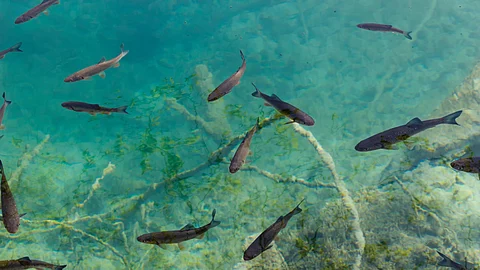The annual festival in the city of Nampally in Hyderabad prepares to receive hundreds of asthma sufferers during the first week of June, which often heralds the start of the monsoon season. Patients receive treatment at the event by ingesting live fish mixed with a medicinal paste.
Every year, people wait in queues at the Nampally exhibition grounds to get the wonder remedy known as "Fish Prasadam," which is thought to treat respiratory issues.
The Telangana state government organizes the event in a lavish manner each year. Around 2 lakh fishlings were purchased by the Department of Fisheries in 2018, and 80,000 people attended the event. Experts from the criminal department were among the more than 2,000 police officers who were on duty during the festival.
What exactly is all the fuss about this fish prasadam, where did it come from, and why is it so well-liked?
First, let's know what fish prasadam exactly is.
It consists of live fingerling murrel (snakehead) fish that has been filled with a yellow herbal mixture. The asthmatic patient must then forcefully swallow this slimy mixture without water when it is placed in their mouth.
What is the origin of Fish Prasadam?
This is the plot of the tale that resembles an Amar Chitra Katha tale: A wandering, drenched holy mendicant from the Himalayas came to the door of the Bathini household on a stormy Mrigasira Karti night in 1845. He was hungry and worn out. He was fed, given dry clothing, and given a place to stay for the night by Veeranna Goud, the toddy trader who lived in the home and was known for always helping those in need.
The fish treatment for respiratory problems was revealed to Veeranna Goud by the sage the following morning as he was leaving the home. Veeranna's great-grandsons, Vishwanath Goud and Harinath Goud, are presently honoring the heritage and serving the fish prasadam.


